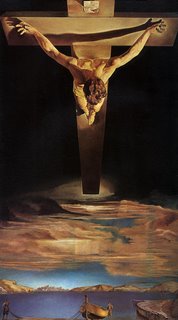 The Wreck of the Deutschland, of course, is Hopkins’ masterpiece—an artistic and a moral masterpiece. For in a Crisis of Impossibility, it is a cry of Faith.
The Wreck of the Deutschland, of course, is Hopkins’ masterpiece—an artistic and a moral masterpiece. For in a Crisis of Impossibility, it is a cry of Faith. The drama of the poem’s occasion—the death of the exiled German nuns by shipwreck—and the drama of the poet’s situation—the wrestling-match of the encounter between the real person and the real God—are revealed in the poem’s first word, “Thou”, and the poem’s last word, “Lord”. The poem is “Thou Lord.” And everything in-between is the Paschal Mystery—the relationship between the human person and Jesus Christ.
The first stanza—“Thou mastering me God!”—sings with an almost erotic frankness of the wrestling-match of God and the person. God is awesome—as master, creator, teacher, dread doom, divine and human savior. Merely the perception of God, merely the experience of God, merely the addressing of God in the daring, wonderful, heatbreaking syllable “Thou” reveals more theology than all the intellectual constructions of the philosophers, as Pascal knew.
And while I’m certain Hopkins did not wittingly intend an erotic aura, I cannot help but notice that this stanza, concerning the relationship between the real person and the true God, all following the invocation “Thou”, includes a progression of words—“mastering me” . . .”breath” . ..”sway” . . .”bound bones and veins” . . .”fastened me flesh” . . .”touch me afresh” . . .”over again” . . .”feel” . . .finger” . ..”find”. Of course, Hopkins pens in the tradition of The Song of Songs and the canticles of St John of the Cross.
No wonder Balthasar chose Hopkins as a star in the constellation of The Glory of the Lord!
Thou mastering me
God! giver of breath and bread;
World’s strand, sway of the sea;
Lord of living and dead;
Thou hast bound bones and veins in me, fastened me flesh,
And after it almost unmade, what with dread,
Thy doing: and dost thou touch me afresh?
Over again I feel thy finger and find thee.
No comments:
Post a Comment